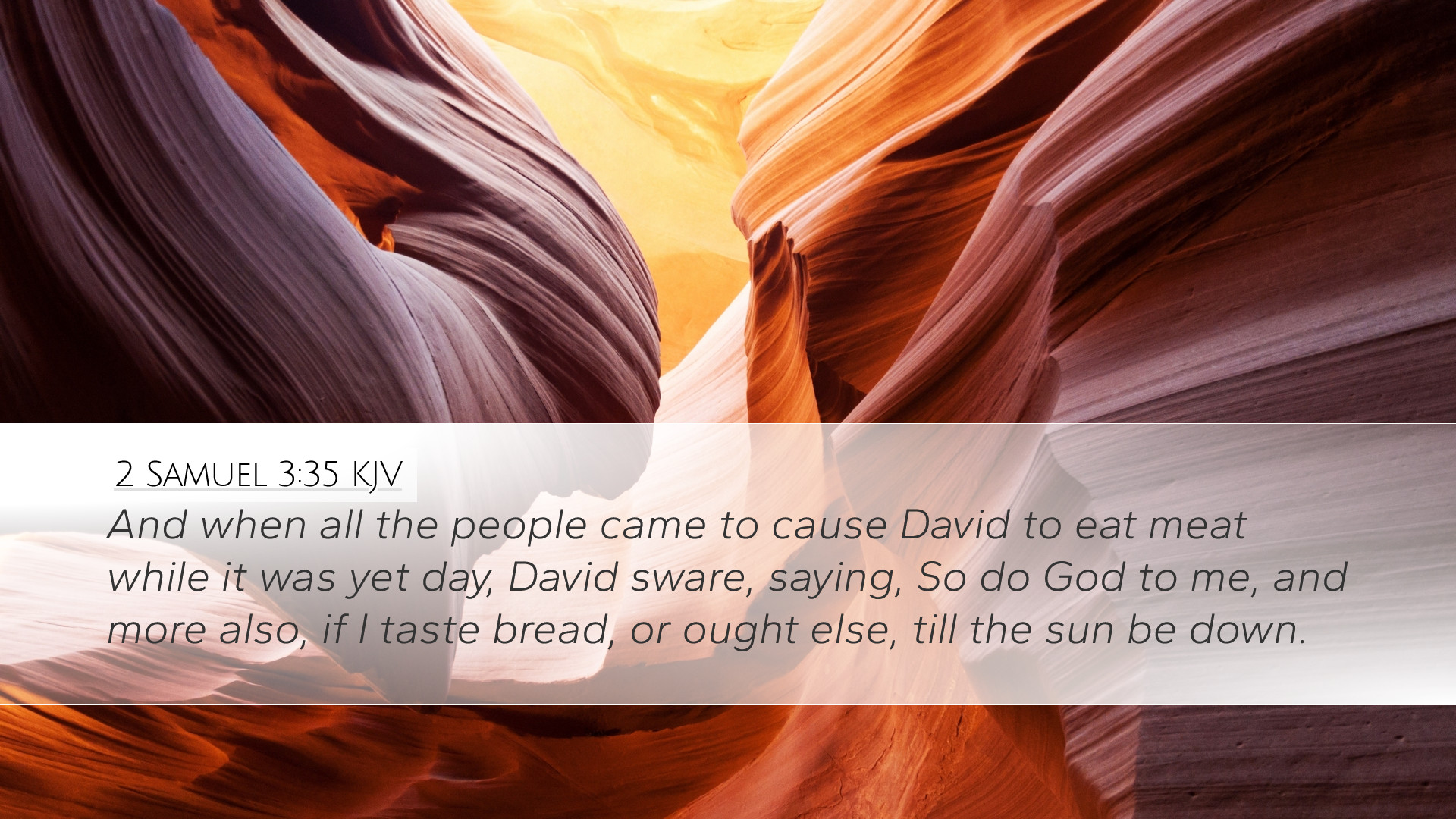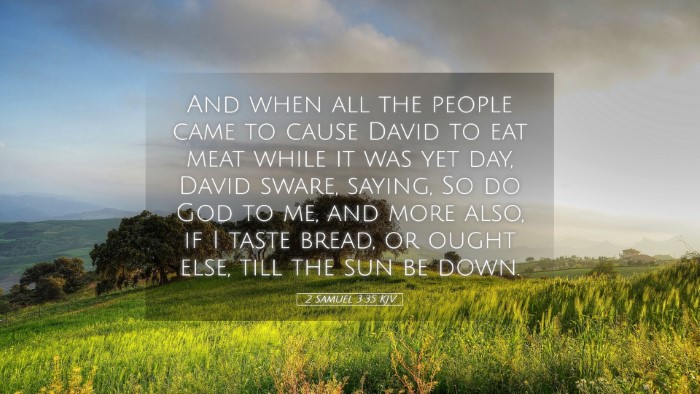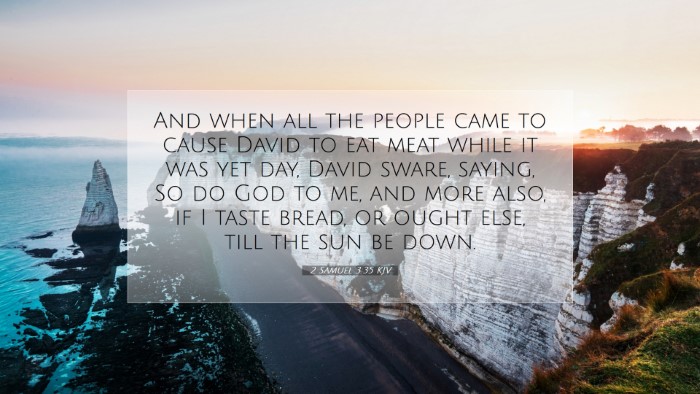Commentary on 2 Samuel 3:35
Verse: "And when all the people came to cause David to eat meat while it was yet day, David swore, saying, 'God do so to me, and more also, if I taste bread or ought else, till the sun be down.'
This verse encapsulates a significant moment in the life of King David following the death of Abner. It reveals deep layers of mourning, respect, and leadership. The insights from various public domain commentaries provide a richer understanding of this text.
Contextual Overview
The passage occurs in the context of a fractured Israel after the death of Saul, with tensions between the houses of Saul and David. The death of Abner, who had been a commander of Saul’s army and later aligned with David, plunged the nation into further grief and uncertainty.
Mourning and Leadership
The actions of David represent a pivotal response to the loss of Abner and serve as a model for leadership in mourning. David did not just express his sorrow privately but publicly led the people in mourning.
- Matthew Henry: Henry emphasizes the importance of mourning in the life of a leader. He notes how David's refusal to eat signifies a deep respect for Abner and a genuine connection to the grief of the people.
- Albert Barnes: Barnes highlights that David’s public mourning was not merely a political gesture but stemmed from sincere grief. By abstaining from food until evening, David was showcasing a deep sense of loss and solidarity with his people.
- Adam Clarke: Clarke provides commentary on the significance of fasting during mourning, noting that it reflects an inward state of sorrow that should accompany outward expressions of grief.
Theological Implications
This verse raises questions about the nature of authority and the responsibilities of those in leadership. David's choice connects to biblical principles of humility and community care in times of loss.
- Respect for the Deceased: David's actions honor Abner's life and leadership, reminding leaders today of the importance of respecting those who have served in significant roles, even when they may have been adversaries.
- Community Mourning: The communal aspect of mourning is highlighted; David’s insistence that he would not eat until evening allows the people to grieve as one, reinforcing the idea that grief is a shared experience.
- Leadership Integrity: This act of fasting is a lesson in integrity and commitment to one's people. David's behavior sets a standard for present-day leaders in demonstrating empathy and care in their governance.
Practical Applications
For pastors, students, theologians, and Bible scholars, this passage has practical applications today:
- Emotional Awareness: Leaders are called to be emotionally aware and sensitive to the needs of their congregations during times of collective grief.
- Public Mourning: The concept of allowing public displays of sorrow, whether in a church, community, or family, fosters healing and unity. Pastors should facilitate spaces for lamentation.
- Integrity in Leadership: Leaders must exhibit integrity, displaying their convictions through actions, particularly during difficult times.
Conclusion
David’s response to Abner’s death and the communal mourning articulated in 2 Samuel 3:35 offer profound insights into leadership, community, and the nature of grief. The synthesis of insights from Matthew Henry, Albert Barnes, and Adam Clarke provides a holistic understanding of this biblical moment. Through David's example, we learn about the significance of mourning and the responsibilities of leadership in providing solace during times of loss.


